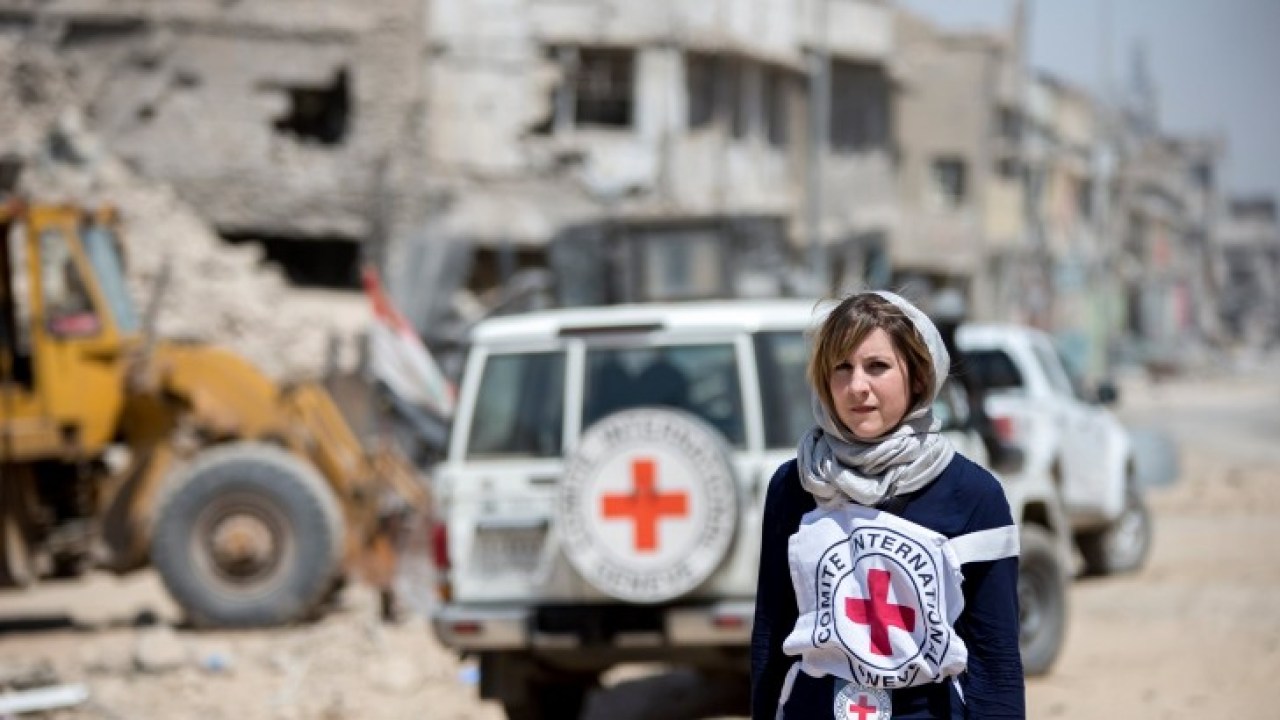
© ICRC
International Committee of the Red Cross
Bringing clarity to complexity

© ICRC
International Committee of the Red Cross
Bringing clarity to complexity
As the world’s largest and longest-standing humanitarian network, the Red Cross has a powerful story to tell. For Ben Paine, Head of Leadership Giving at the International Committee of the Red Cross, that brings huge opportunities for philanthropy – but it’s also a challenge: “My colleagues across the Red Cross and Red Crescent Movement do incredible work, but it is vast – and that can be overwhelming for donors. We needed a globally consistent story that focused on our strengths, but left some things out, too.” And this becomes even more important when speaking with global supporters in multiple countries.
Defining a ‘shop window’
Ben and his team sought out More, and in particular partner Simon Pennington, to craft a new case for support. “We wanted to harness More’s experience of engaging with people of means in a range of sectors and contexts,” Ben says. The work built on an earlier project with Simon, that had assessed their readiness for philanthropic fundraising. A clear recommendation had been the need to mobilise people around a new narrative.
“The Red Cross has a really distinctive and authentic story,” explains Simon. “But it is complex, in terms of scale, breadth of work, and the number of constituent parts. The team had struggled to define a ‘shop window’ for donors.”
To help them respond to their challenge, we drew on our experience of working with other large organisations, such as Cancer Research UK, the University of Oxford and Unicef UK. “What impressed me is that More worked with the reality of our complexity,” adds Ben. “They took it on and used it as a strength, rather than trying to use an approach that had worked in other contexts.”
A blossoming collaboration
As a first step, we carried out a series of intensive interviews at ICRC’s headquarters in Geneva with senior stakeholders spanning programme, philanthropy and management. “Crucially, More made very positive impressions with our senior colleagues,” adds Ben. “As fundraisers, these are our key internal relationships. Simon made good use of their time and helped to encourage their future support and engagement.”
From there, a rich collaboration blossomed. Every person in the ICRC team brought something valuable, whether big ideas, an attention to programme detail or the donor perspective. “Good friendships contribute energy and momentum,” adds Ben. “When we interacted with More, we had a sense of moving forward at pace. And, as with the very best friendships, we really trusted their advice. They helped to reflect, interrogate and add to our thinking.”
It was an inspirational process for both More and ICRC. “We needed to reflect upon our principles and values,” says Ben, “and seek those kernels of truth that we want to make clear to potential partners. It isn’t always the case that a project requires us to so deeply engage with our humanitarian values, and think about how we would express them to others.”
Asking big questions
The breakthrough came when Simon had the idea of structuring the story around big humanitarian questions. Questions like: How can we provide education when virtually every school has been destroyed? Or how can we care for the psychological health of children who have seen their families killed? “Asking these things meant we could invite philanthropists for their responses and to share the questions which were on their minds,” says Simon. “It allowed the narrative and the institution to feel ‘porous’, and welcoming of input from the outside.”
More's specialist case writer Ben Beaumont got to work. He crafted a narrative that tackled a typical donor’s principal concerns: Why should I care? Why should I believe? And what difference will my gift make? The story that emerged built on the ICRC’s founding role in humanitarian response, and the need to reimagine this work for the 21st century. “Rather than starting from a proliferation of activities in different countries and communities, we identified a few issues that we all know from our news screens we should care about,” adds Simon. “The ICRC is genuinely the best-placed institution in the world to understand and fix these things; it’s an incredibly inspiring, high quality global organisation. And our work gave them a form of language to use in conversations with donors that hadn’t really existed before.”
Anticipating change
For Ben Paine and his team, this new story “managed to reflect the complexity of the world and the speed of change without being overwhelmed by those realities.” It also gave them the built-in flexibility to respond to current events and off-topic ideas. “The narrative was drafted largely before the pandemic, but it also anticipates issues just like it,” he adds. The ICRC are now in the process of adapting it for different audiences and cultures, and creating an interactive version for face-to-face meetings.
“It has become our go-to narrative for a range of interactions with senior colleagues, leadership and philanthropists,” he says. “It will enable consistent presentation and focus for donor conversations. It’s an exciting invitation to our partners to influence systemic change.”
Because, as the final sentence in the case for support puts it: ‘There’s no finer mission for philanthropy than to help those who have lost everything.’
About the International Red Cross and Red Crescent Movement
The International Committee of the Red Cross (ICRC) is part of the International Red Cross and Red Crescent Movement, the world’s largest humanitarian network. Alongside the ICRC, it consists of the International Federation of Red Cross and Red Crescent Societies and the 192 National Red Cross and Red Crescent Societies. Its mission is to alleviate human suffering, protect life and health, and uphold human dignity, especially during armed conflicts and other emergencies.
To find out more about how we can help your organisation to craft your case for support, contact us on info@morepartnership.com or 01382 224730.